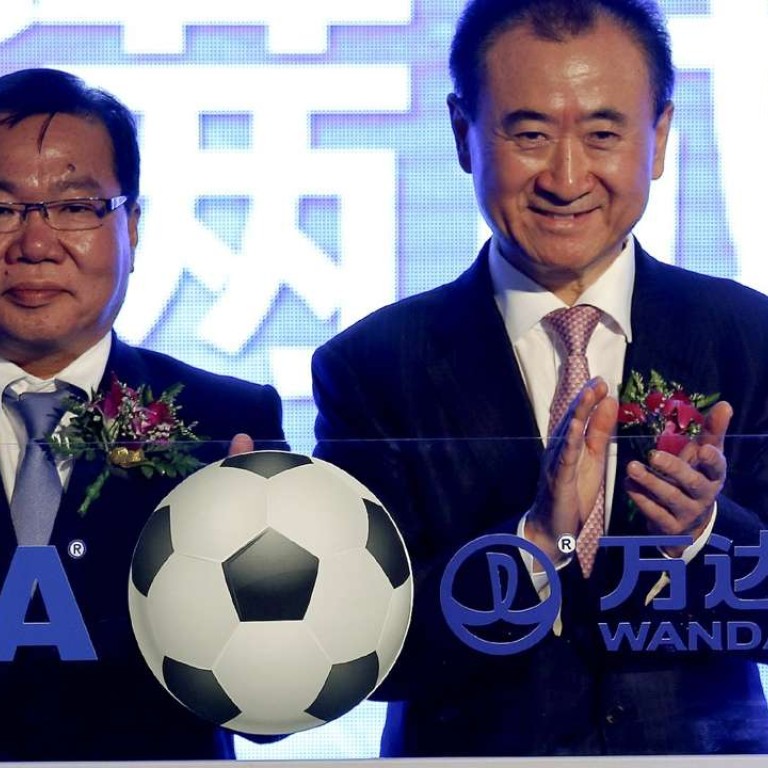
China’s richest man calls for patience in country’s push to become football superpower
Wang Jianlin, chairman of Wanda Group, has long been a supporter of football in the country
China’s richest man, Wang Jianlin, has warned the country’s football clubs to spend their money more wisely – and that the nation’s goal of becoming a soccer superpower will require patience.
The chairman of Wanda Group, who has long invested in the sport in China, was speaking to state news service Xinhua, and his comments appear to be the latest signal that the country’s wild spending on foreign football clubs and players is over.
Wang, the founder of China’s largest real estate developer, said investment in youth development rather than foreigners was the way forward, echoing what seems to be the official line of a government increasingly concerned by the potential for corruption in China’s football boom.
“Chinese football is riding on a fresh rising tide after the boom in the 1990s,” Wang told Xinhua. “We can say that the game has developed better now than was the case years ago in China.
“To put it simply, football is a money sport that requires a high capital input. But it also matters how the money is spent.

Wang was at the forefront of China’s campaign to expand investment in football, when Wanda bought a stake in Spanish giants Atletico Madrid in 2015.
That has since been followed by a host of other Chinese firms investing in, or buying outright, European clubs, while the Chinese Super League (CSL) has shocked world football with its recent spending spree on foreign stars.
“The performance of the Chinese squad is not very satisfying,” Wang added. “As a result of a doubled or redoubled capital input, the CSL has flourished for the past four or five years, while in sharp contrast the number of youth playing football has not gone up significantly.
“It is beyond our imagination that some homegrown players were transferred to other teams on a 100-million-yuan fee, making them among the world’s top-priced footballers, but youth participation remains stagnant.”
Wang said Chinese football needed to build from the bottom up by focusing on youth development, according to Xinhua.
“It is unlikely to see results in just three to five years,” Wang said. “But it is never too late if concrete actions are taken to develop sports facilities, promote youth participation, and organise youth games.”
Wanda has spent 100 million yuan every year since 2011 to train Chinese youth players in Spain, Xinhua said, but it would still take time before any were ready for the China national team.
“In terms of fostering football players, we have to be patient and wait for up to 10 years before results can be seen,” Wang added.

“You have to try it if you want know whether a measure works or not ... [but] there is no football power in the world that relies on other countries to foster and train its own youth talents.”
Wanda recently became a key sponsor of world governing body Fifa, a move seen by many as the first step to bring the World Cup to China, a stated goal of president Xi Jinping’s. Wang and Xi are close associates.
His comments on youth development over foreign imports echo those of another tycoon, Xu Jiayin, the chairman of the property firm which sponsors Guangzhou Evergrande. Evergrande, who have led the way in the CSL’s spending spree, didn’t buy anyone in the most recent transfer window.
The Chinese Football Association introduced a surprise new rule this season limiting the number of foreigners and requiring clubs to field under-23 Chinese players, a move that many saw as being ordered by the government.


